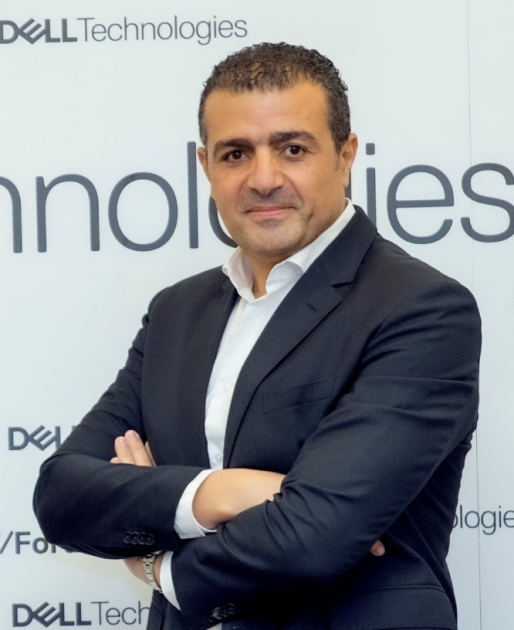
Dell research: Saudi businesses regard their people as their greatest asset for driving transformation projects
Dell Technologies’ research from 40+ countries details how after two years’ of accelerated digital transformation business leaders are more aware than ever of the role that employees play in driving successful change
Story Highlights:
- 84% of Saudi business leaders regard their people as their greatest asset
- 48% of IT leaders in Saudi Arabia say their organisation knows what it takes to digitally transform a workforce
- 72% of KSA respondents look forward to learning new skills and technologies, to help elevate their careers
- However, 63% believe their organisation underestimates the people requirements when planning transformation programs
Full story
After two years of accelerated digital transformation, almost half of IT leaders (48%) in Saudi Arabia say their organisation knows what it takes to digitally transform a workforce, but after such rapid change, many employees are now facing a challenge to keep up the pace according to a new Dell Technologies Breakthrough Study. What’s more, close to two-thirds of Saudi business leaders (63%) of 10,500 respondents from 40+ countries believe their organisations underestimate how to engage with their people properly when planning transformation programs.
The results highlight how the recent period of rapid transformation are leaving businesses and their workforce in need of time to recharge, reflect and refine before embarking on new or iterating on projects. Despite the huge progress and efforts of the past few years, the research highlights how there is still a potential for transformation to stall as 55% of KSA respondents believe it is their people’s resistance to change can lead to failure.
(1).jpg)
Mohamed Talaat, Vice-President, SELL, Dell Technologies:
“In today’s do-from-anywhere world, organisations depend on their employees to drive change that leads to impactful growth. In Saudi Arabia, as the nation charts its long-term growth plans, this confidence is even more evident. However, while decision makers see their talent as their greatest business asset, a large majority of the staff are overwhelmed with the staggering transformation that has taken place over the last two years. At Dell Technologies, we believe sustainable breakthrough happens at the intersection of people and technology. By understanding human behaviours, their preferences, and encouraging them with appropriate technology, businesses in Saudi Arabia can turn employees into highly motivated partners in growth.”
Now is the time for organisations to take stock before embarking upon new digital transformation projects, ensuring their workforce is supported and has clarity on the next stage of implementation.
The study charts a path forward. It signposts opportunities for businesses to focus, and keep pace with transformation, with breakthrough happening at the intersection of people and technology along three frontiers:
1. Connectivity
Businesses performed tremendous feats to connect, collaborate and conduct business online during the pandemic. But they're not finished.
Almost three-quarters (73%) of respondents from Saudi Arabia say they need their organisations to provide the necessary tools and infrastructure to work anywhere (along with the autonomy to choose their preferred working pattern). In fact, they worry their people might be left behind because they don't have the right technology to shift to a highly distributed model (where work and compute are not tied to a central place but occur everywhere).
The technology alone isn't sufficient. Businesses also need to make work equitable for people with different needs, interests, and responsibilities, by focusing on the following factors that will eventually lead to increased business success.
Define the company’s ongoing commitment to flexible work arrangements and the practicalities of making it work
- Equip leaders to manage remote teams effectively and equitably Empower employees to choose their preferred working pattern and provide the necessary tools/infrastructure
2. Productivity
People's time is limited and there are now too few qualified candidates for open roles. To address these strains, businesses can delegate repetitive tasks to automated processes and free-up people to focus on enriching, higher-value work.
At present, 38% from KSA say their work is stimulating and not repetitive. With the opportunity to automate more repetitive tasks, 72% in KSA look forward to learning new, sought-after skills and technologies, like leadership skills, courses in machine learning, or focusing on more strategic opportunities to elevate their role.
3. Empathy
At their heart, businesses must build a culture, modelled by empathetic leaders, that treats people as their greatest source of creativity and value.
The research shows there is still work to do and empathy has to inform decision making, from simplifying technology for more than half (55%) of respondents in KSA who often feel overwhelmed by complex technologies, to tailoring change programs to individuals’ skills where 40% of employees in Saudi Arabia believe their leaders do this.
For more information, visit www.dell.com/breakthrough and read our research report.
Research Methodology:
Fieldwork was conducted by market research company, Vanson Bourne, from August–October 2021 across 40+ locations from all regions of the world.
Base: 10,500 senior business decision-makers, IT decision-makers and knowledge workers (employees involved in digital transformation).


























